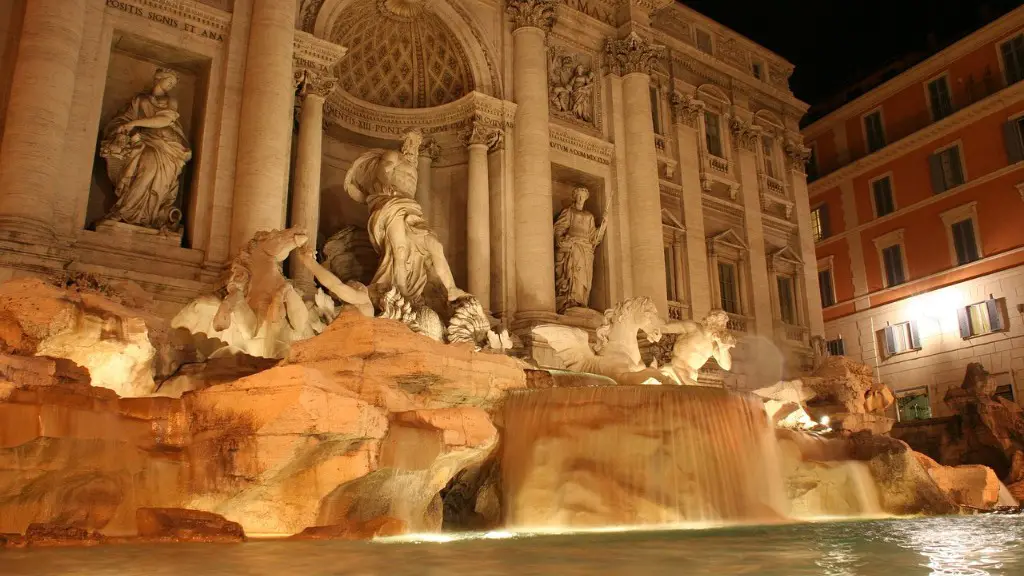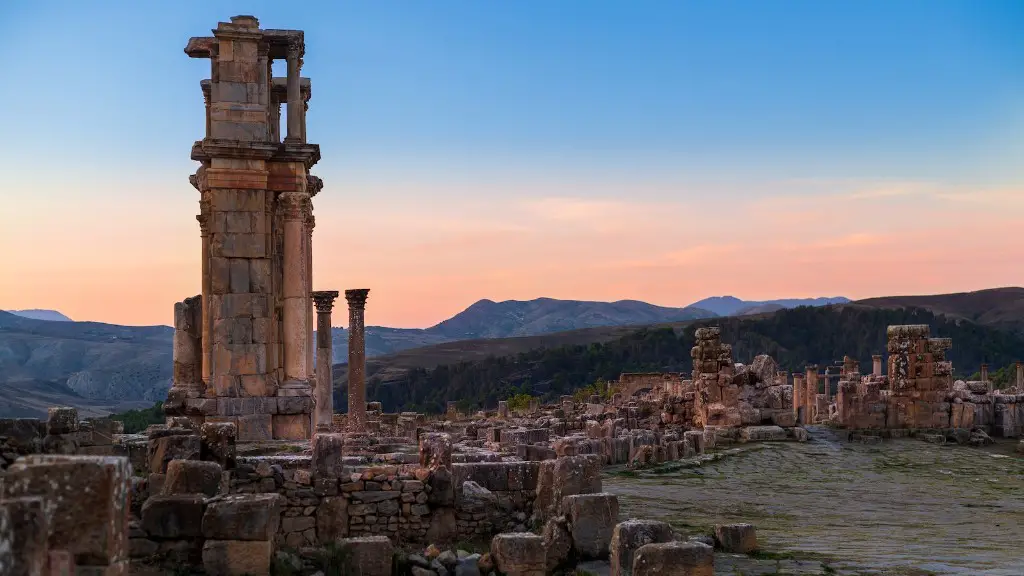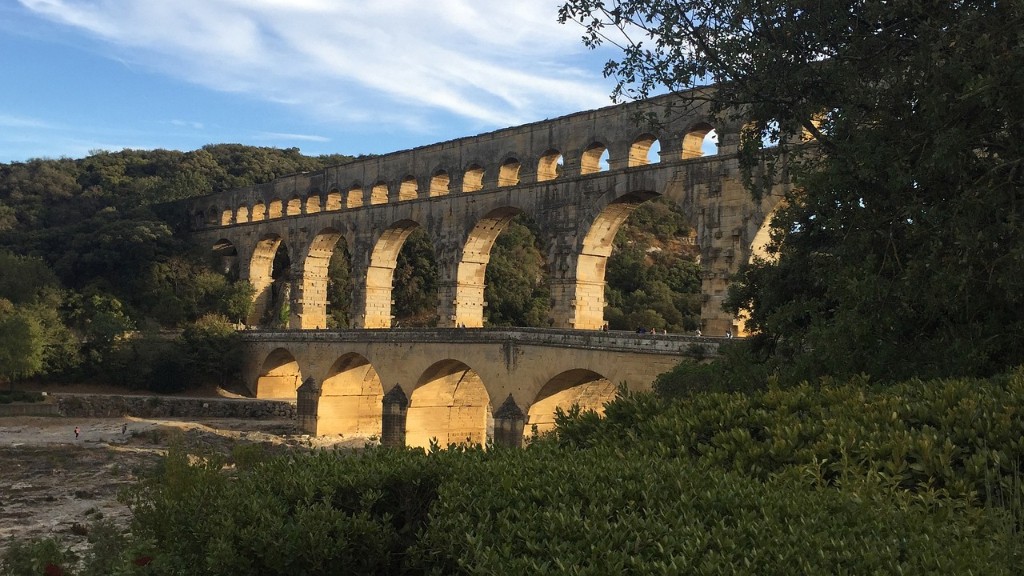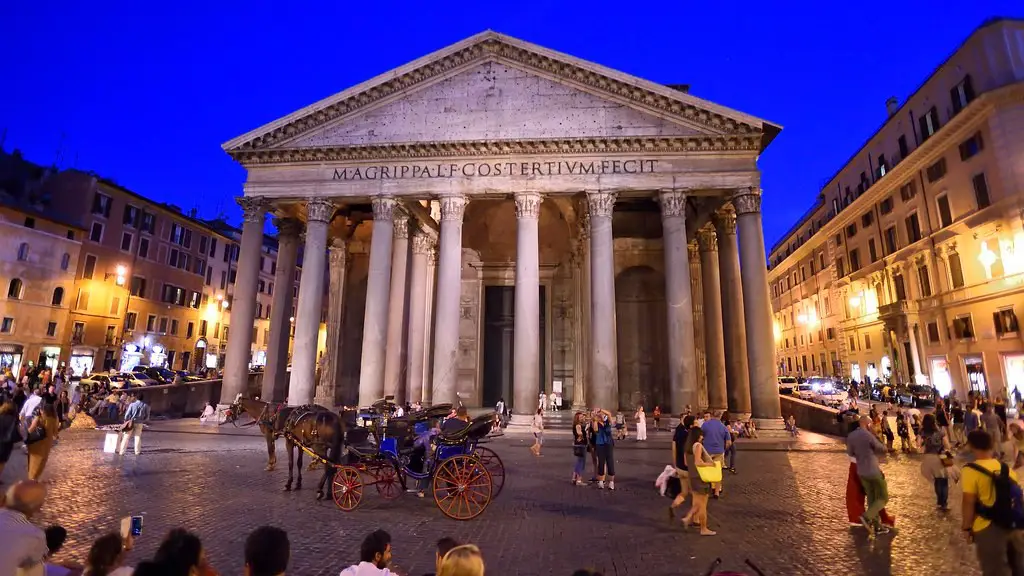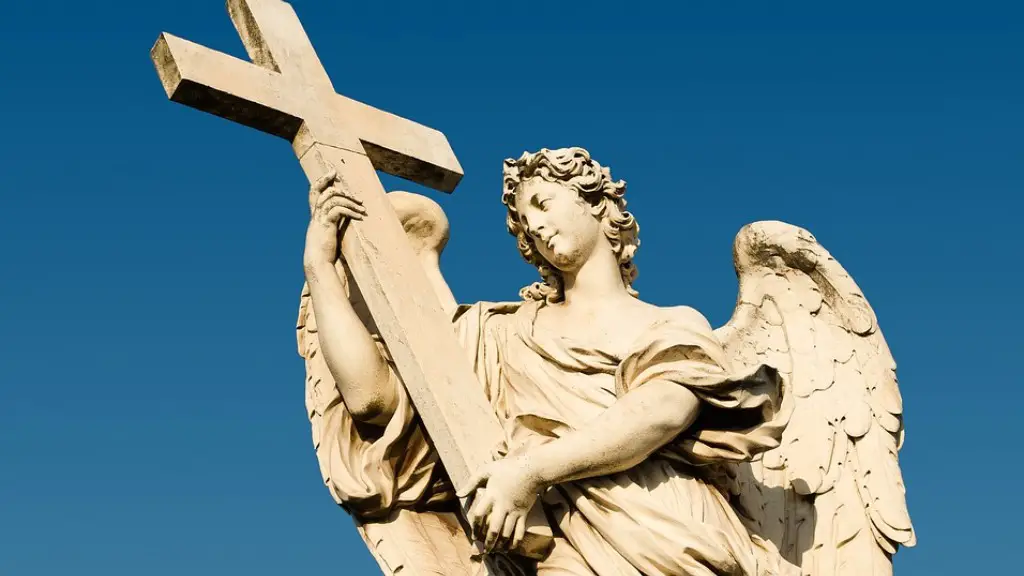Religion in ancient Rome was deeply rooted in the polytheistic belief of the Roman people and the statesman-like behaviour of their gods. Its origin can be traced back to the beginnings of the Roman Republic in the 6th century BC and the time when the religion of the Etruscans was being assimilated into Roman culture. Since then, the practice of religion evolved constantly, moulding itself to meet the changing needs of Roman society.
The Etruscan religion, which was the basis of Roman religion, was based on the worship of an array of gods and goddesses, or numina, associated with natural phenomena such as wind, rain, and the Sun. These deities were venerated, with prayers and ceremonial sacrifices at their shrines. Central to the Roman concept of divinity was the idea of divine rule, in which gods were viewed as patrons and protectors of the state and its citizens, who held obligations to return tribute and reverence to their gods.
Until the mid-Republican period, when attempts were made to construct a unified system of state religion, religious belief and practice in the Roman world were largely non-standardised and varied regionally. The plurality of Roman gods did not reflect a concept of monotheism in the modern sense, but rather the belief that each deity had its own distinct and specific sphere of influence. This led to the development of a complex system in which different gods and goddesses were associated with each other, and with certain human activities.
A key feature of the Roman religious tradition was the official recognition and state-sponsored celebration of festivals, or feriae. These were days or periods of ritual observance during which religious rights were performed and oaths of allegiance sworn. A variety of sacrifices and religious activities were performed, such as public games in the Circus Maximus or other arenas, or processions through the streets of Rome. The major festivals of the Roman calendar were Saturnalia, the Lupercalia, the Matronalia, and the Megalenses.
Over time, the Roman religion became increasingly connected to the state. Religion was heavily intertwined with politics and became a major factor in public life and social cohesion. Temples were built as civic monuments, and the public cult of a deity was seen as a form of civic responsibility. Over the course of Roman history, the concept of the emperor as divine was gradually incorporated into Roman state cult, culminating in Emperor Trajan’s apotheosis, or elevation to the status of a deity upon his death in 117 AD.
This shift in religious practice had a deep impact on the spiritual life of Roman citizens. The traditional polytheistic cults were replaced by the Cult of the Emperor, in which the worship of the divine was focused on the emperor. Over time, a cult of Eastern gods and goddesses, such as Isis and Mithras, became popular among the upper classes. These foreign cults were accepted by the government and gradually adopted into the Roman religious system.
The Spread of Christianity in Ancient Rome
By the time of the 4th century AD, the Roman Empire was in decline and was experiencing a period of religious transformation. The rise of Christianity began with the birth of Jesus Christ in 1st century Judea and its subsequent spread throughout the Roman Empire. In 312 AD, the Edict of Milan granted Christianity the status of an official religion and allowed it to be practiced freely. Over the course of the 4th century, Christianity quickly gained adherents, particularly among the lower classes. By the 5th century, Christianity was the dominant religion in the Roman Empire.
The spread of Christianity posed a threat to the traditional Roman religions and state cult, with which it competed and sometimes clashed. In particular, Christianity rejected the idea of the divinity of the emperor, a key feature of the state cult. This encounter played out in a number of ways, from the various conflicts between Christians and imperial authorities to the rivalries of various Christian sects competing for dominance.
Christianity was also viewed with suspicion by traditional Romans who were unwilling to accept its new beliefs. This tension culminated in the famous Edict of Thessalonica of AD 380, which made Christianity the official religion of the Roman Empire and led to the rapid decline of the traditional Roman religions.
Religious Practices
Religious ritual was a crucial part of the ancient Roman world, and much of it was codified in the Sibylline Books, collections of sacred writings used for divination and ritual guidance. These rituals included the offering of sacrifices and libations to the gods, and the holding of festivals and ceremonies. Sacrifices, in particular, were considered a communion with the gods, a form of communion in which the divine and human powerfulness were joined and gifts were given to the gods in exchange for their help and support.
Religious beliefs and practices also had a marked influence on private life and the daily activities of Roman citizens. Many religious customs were matrilineal in nature, and the family played an important role in religious observances. Priests were drawn exclusively from the most aristocratic families, who held a monopoly on the priesthood in Rome. As such, religious practice was seen as an important way of maintaining social hierarchy in the city.
Religious practices and beliefs were also deeply ingrained in the state, with religious law and public ceremonies managed by state officials. Laws concerning religious observance, such as the prohibition of certain types of sacrifice, were passed and enforced in the courts. In addition, religion was used for political ends, with members of the elite using their personal piety as a way of garnering public approval and demonstrating their commitment to the state.
Influence of Religion on Society
Religion was an integral part of Roman life and had a profound effect on Roman society. It permeated every aspect of life, from the personal to the political, and contributed to the formation of social and cultural identities. Religion provided a source of comfort and solace in times of crisis, as well as a common language that bound different peoples together.
The rise of Christianity had a strong impact on Roman values and attitudes. Christianity brought a new moral code that emphasised the idea of a benevolent God, the value of mercy and forgiveness, and the importance of charity and faith. These values helped to shape Roman social and political life and laid the foundation for many of the ethical values still held today.
Roman religion also provided a means of social control. State-sanctioned religious ceremonies were used to reinforce the values and norms of Roman society, such as respect for law, tradition, and hierarchy. It also provided a way for people to express their loyalty to the state, as well as their faith in its leadership.
Decline of Religion
With the decline of the Roman Empire in the 4th century AD, the traditional Roman religions began to decline. In part, this was due to the gradual process of Christianisation, as well as the rise of new religious movements such as Neoplatonism and Mithraism. At the same time, the decline of the Roman state and the wave of invasions that followed also disrupted civil society and led to a decline in traditional Roman religious practices.
The decline of religion in Rome had a profound effect on Roman society. It weakened social bonds, undermined the authority of the state, and led to the breakdown of traditional values and cultures. Despite this, the influence of Roman religion still lingers in modern society, as evidenced by the many festivals and customs that bear its mark.
Impact on Modern Religion
The influence of the Roman religion is still felt in modern religions, especially in the Western world. Many aspects of Christianity and other religions have their roots in the religious practices and beliefs of the ancient Romans. In addition, the Romans left behind a vast religious literature that has shaped much of modern religious thought.
For example, elements of the Roman religion can be found in the Christian concept of divine rule, the idea that God is the omnipotent and omniscient ruler over all of creation. Similarly, many Roman festivals, such as Saturnalia and Lupercalia, have been adopted into Christianity and other modern religions. Furthermore, Roman gods and goddesses such as Jupiter and Juno still feature prominently in religious iconography, and many of the symbols associated with them, such as the eagle and the olive branch, remain in use today.
It is clear that, despite its decline, the ancient Roman religion had an immense and lasting impact on religion, culture, and society. The legacy of Roman religion can be seen in the modern world and is still a powerful force to be reckoned with. Spanning millennia, it is a remarkable testament to the power, longevity, and endurance of a single religion.
Morality and Law
Roman religion, like other ancient religions, also had a profound influence on morality and law. Roman law drew heavily on religious precepts and was designed to ensure both morality and justice. Laws governing such areas as marriage, divorce, inheritance, and property were heavily influenced by religion, as were the values of honour, integrity, and trust.
Similarly, the concept of morality in ancient Rome was closely linked to religion. Virtuous behaviour was viewed as a way of honouring the gods and ensuring their favour, while immoral actions were seen as an affront to the gods and punishable by divine judgement. Religion also provided a moral code by which people could live and defined a set of ethical principles by which to conduct one’s life.
The concept of natural law, based on the idea that justice and morality are part of the natural or divine order, was also prevalent in Roman society and heavily informed Roman law. Natural law was seen as an expression of the divine order and a way of ensuring justice, and it was upheld and enforced through Roman law.
Conclusion
The ancient Roman religion had an immense impact on the Roman world, from influencing moral and ethical values to shaping religious thought and practice. Its legacy is still felt today in the form of religious icons and symbols, festivals, and values that remain with us to this day. It is clear that its influence touched every aspect of Roman life and that its impact continues to be felt in the modern world.
